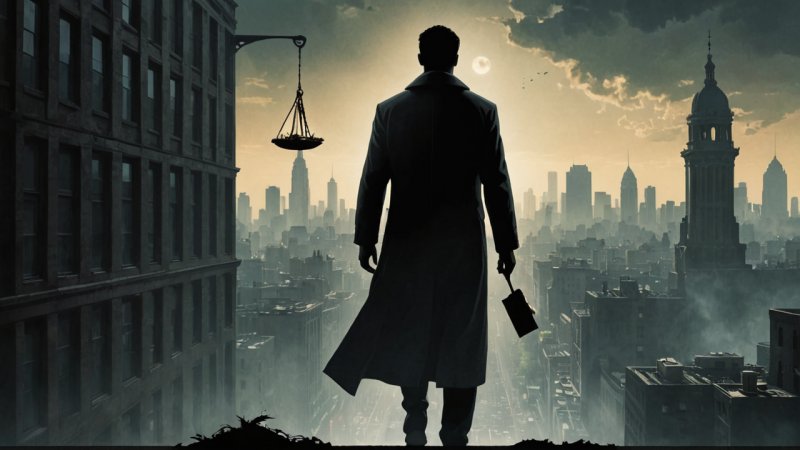Thriller literature has long captivated readers with its pulse-pounding narratives, intricate plots, and unexpected twists. Yet, in recent years, a significant evolution has occurred within the genre, aligning itself more closely with the pressing social issues of our time. This transformation has enriched the landscape of thriller literature, allowing authors to weave complex social commentaries into their gripping tales. As contemporary thrillers tackle themes such as systemic injustice, mental health, climate change, and technology’s impact on society, they not only entertain but also provoke thought and discussion. This article delves into the role of social issues in contemporary thriller literature, examining how these themes enhance narratives and resonate with readers in an increasingly complex world.
The Intersection of Thrills and Social Commentary
Contemporary thrillers are no longer content with merely delivering suspenseful plots; they are now vibrant platforms for exploring significant social issues. Authors are increasingly using the genre as a lens through which to examine and critique societal norms and injustices. For instance, novels that delve into topics like racism, inequality, and corruption often create characters whose personal stakes are intertwined with these larger societal themes. Such narratives not only heighten the tension but also provide a deeper understanding of the real-world implications of these issues.
Case Study: The Psychological Thriller
Psychological thrillers have seen a surge in popularity, particularly those that explore the intricacies of mental health. Works like *The Silent Patient* by Alex Michaelides and *Sharp Objects* by Gillian Flynn delve into the minds of characters grappling with trauma, abuse, and societal expectations. These stories highlight the often stigmatized issues surrounding mental health, encouraging readers to confront their own perceptions and biases. By intertwining psychological complexity with thrilling plots, these authors create not just suspense, but also awareness and empathy for those facing mental health challenges.
Addressing Systemic Issues
Many contemporary thrillers have taken bold steps to address systemic problems within society. Novels like *The Hate U Give* by Angie Thomas and *An American Marriage* by Tayari Jones explore themes of race, injustice, and the criminal justice system. These stories present characters whose lives are irrevocably altered by the systemic inequalities they face, inviting readers to consider the broader implications of these narratives. The thrill comes not just from the plot twists but from the uncomfortable truths about society that they reveal.
Technology as a Double-Edged Sword
In an age dominated by technology, contemporary thrillers are increasingly exploring its dual nature—both as a tool for progress and a means of control. Novels like *The Circle* by Dave Eggers and *Dark Matter* by Blake Crouch examine the implications of technological advancements on personal privacy, identity, and freedom. These stories often invoke a sense of unease that mirrors real-world concerns about surveillance, data privacy, and the ethical dilemmas posed by artificial intelligence. As readers navigate these thrilling narratives, they are prompted to reflect on their own relationship with technology and its potential consequences.
Climate Change and Environmental Thrillers
Another significant area where social issues intersect with thriller literature is the theme of climate change and environmental degradation. Books like *The Overstory* by Richard Powers and *The Water Knife* by Paolo Bacigalupi explore the dire consequences of environmental neglect and the struggle for survival in a changing world. These narratives not only provide thrilling plots but also highlight the urgency of addressing climate issues, making readers acutely aware of the stakes involved. The thrill lies in the characters’ fight against time, echoing the real-world urgency of combating climate change.
Empowering Voices and Diverse Perspectives
Contemporary thriller literature has also seen an influx of diverse voices, bringing a variety of perspectives to the forefront. Authors from different backgrounds are telling stories that resonate with their unique experiences and addressing social issues that may have been previously overlooked. This has enriched the genre significantly, allowing for a broader exploration of themes such as gender inequality, immigration, and cultural identity. Books like *The Good Daughter* by Karin Slaughter and *The Wife Between Us* by Greer Hendricks and Sarah Pekkanen showcase complex female characters tackling societal expectations and personal demons, offering thrilling narratives that resonate with a diverse readership.
Conclusion: The Ongoing Evolution of Thriller Literature
As contemporary thriller literature continues to evolve, its role as a mirror reflecting societal issues becomes increasingly important. The genre’s ability to blend suspense with social commentary not only captivates readers but also fosters a deeper understanding of the complexities of the human experience. By engaging with themes such as mental health, systemic injustice, technology, and environmental crises, authors are creating narratives that challenge, educate, and inspire. The thrill of the unknown is now coupled with the urgency of awareness, making contemporary thrillers not just a form of entertainment but also a catalyst for dialogue and change. As readers embrace these narratives, they are invited to explore the darker corners of society while also igniting a passion for social justice and empathy.






